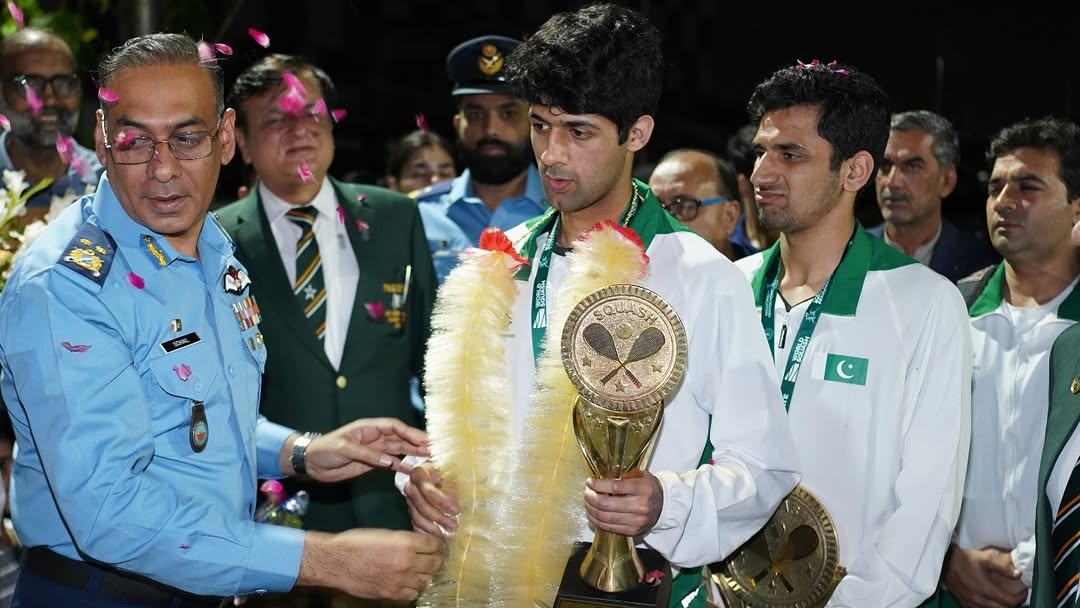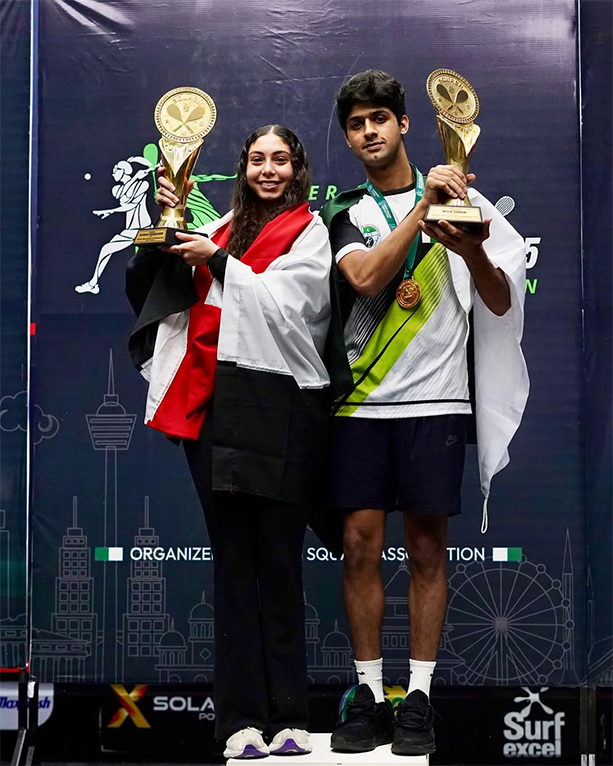Rawalpindi: Pakistani leaders, celebrities and fans on Wednesday mourned the passing of Dilip Kumar, one of the greatest stars of the golden age of Indian cinema from the 1940s to the 1960s, who died in Mumbai aged 98.
Kumar, who had a career spanning over 50 years and acted in nearly 60 films, was born Mohammed Yusuf Khan on December 11, 1922, in Peshawar in what was then United India, before independence from British rule and the creation of Pakistan. He was an actor, film producer and philanthropist, as widely revered in Pakistan as he was in India.
Kumar is survived by his wife, Saira Banu, a top Bollywood leading lady in the 1960s and 1970s.
“With a heavy heart and profound grief, I announce the passing away of our beloved Dilip Saab, few minutes ago,” a family friend of Kumar’s, Faisal Farooqui, posted on the late actor’s official Twitter. “We are from God and to Him we return.”
With a heavy heart and profound grief, I announce the passing away of our beloved Dilip Saab, few minutes ago.
We are from God and to Him we return. - Faisal Farooqui— Dilip Kumar (@TheDilipKumar) July 7, 2021
Prime Minister Imran Khan wrote that he was “saddened” to learn of Kumar’s passing, calling him the “greatest and most versatile actor” of his generation. He also highlighted the actor’s efforts to help raise funds for Shaukat Khanum Memorial Hospital, the cancer hospital Khan founded in the 1990s.
“I can never forget his generosity in giving his time to help raise funds for SKMTH when the project launched.”
Saddened to learn of Dilip Kumar's passing. I can never forget his generosity in giving his time to help raise funds for SKMTH when project launched. This is the most difficult time - to raise first 10% of the funds & his appearance in Pak & London helped raise huge amounts.
— Imran Khan (@ImranKhanPTI) July 7, 2021
Apart from this, for my generation Dilip Kumar was the greatest and most versatile actor.
— Imran Khan (@ImranKhanPTI) July 7, 2021
President Dr. Arif Alvi also took to Twitter with a message of condolence: “An outstanding actor, a humble man, and a dignified personality.”
Sorry to see Dilip Kumar (Yusuf Khan) depart from his worldly abode. An outstanding actor, a humble man, and a dignified personality. Condolences to the immediate family and his huge family of admirers. May his soul rest in peace.
— Dr. Arif Alvi (@ArifAlvi) July 7, 2021
Kumar has been credited for bringing a distinct form of method acting and realism to Indian cinema and holds the record for the most Filmfare Award for Best Actor wins. He was also the inaugural recipient of the award.
The New York Times in its obituary called him “the last of a triumvirate of actors who ruled Hindi cinema in the 1950s and ‘60s.”
“In post-independence India, Mr. Kumar and two other stars set about defining the Hindi film hero,” the Times said. “Raj Kapoor reflected the newly minted Indian’s confusion: his signature role was that of the Chaplinesque naïf negotiating a world that was losing its innocence. Dev Anand, known as the Gregory Peck of India, embodied a Western insouciance that still lingered; he became a stylish matinee idol.”
Kumar delved deeply into his characters, “breaking free from the semaphoric silent-movie style of acting popularized by megastars like Sohrab Modi and Prithviraj Kapoor.”
As one of the country’s earliest method actors, he was often compared to Marlon Brando, another early adopter of the technique, even though Kumar credited himself with using the technique first.
Kumar received the Padma Bhushan, one of India’s highest civilian awards, in 1991, the Dadasaheb Phalke, India’s highest award for cinematic excellence, in 1994, and the Padma Vibhushan in 2015. From 2000 to 2006, he served as a member of the Rajya Sabha, the upper house of Parliament.
In 1998, the Pakistani government conferred on him their highest civilian honor, the Nishan-e-Imtiaz - the only Indian to get the award.
Information Minister Fawad Chaudhry said Kumar was loved by millions of people across India, Pakistan and around the world: “Tragedy king will be missed always.”
An Iconic hero! Dilip Kumar is no more,loved by Millions of people in the sub continent and around the world tragedy king will be missed always... RIP Yousaf Khan aka Dilip Kumar https://t.co/xoQYV014xA
— Ch Fawad Hussain (@fawadchaudhry) July 7, 2021
“A man of all seasons. He will be mourned by millions in India, Pakistan and wherever Indian cinema is followed,” journalist Raza Rumi tweeted:
The legendary actor #DilipKumar is no more. What a sad day.
Immensely talented, erudite, humane, an advocate of peace..
A man of all seasons. He will be mourned by millions in India, Pakistan and wherever Indian cinema is followed.
Rest in peace, Yusuf Khan! pic.twitter.com/ALStavCGzy— Raza Ahmad Rumi (@Razarumi) July 7, 2021
Ajmal Jami, a special correspondent and talk show host at top TV channel Dunya News, wrote that Kumar would live on in the hearts and memories of all people around the globe who were familiar with Bollywood:
Your soul might hv departed but U r going to live forever in the hearts and memories of all those who r familiar with Bollywood across the planet. #RIPDilipKumar Sir! There never was, never will b anyone like U, Yousuf Khan Sahib! May ur soul rest in eternal peace@TheDilipKumar pic.twitter.com/YxqOdsarPJ
— Ajmal Jami (@ajmaljami) July 7, 2021
Pakistani cricketer Shahid Afridi wrote, “A huge loss for Yousuf Khan sahib’s fans from KPK [Khyber Pakhtunkhwa province in Pakistan] to Mumbai and across the globe. He lives on in our hearts.”
Indeed to Allah we belong and to Allah we shall return.
A huge loss for Yousuf Khan sahib's fans from KPK to Mumbai and across the globe. He lives on in our hearts. Deepest condolences to Saira Banu sahiba. #DilipKumar pic.twitter.com/T51NelBl6O— Shahid Afridi (@SAfridiOfficial) July 7, 2021
Senator Faisal Jawad Khan shared a number of photos of Imran Khan and Kumar together and wrote: “Truly a legendary actor, humanitarian. His universal acting style inspired generations of actors.”
RIP Mohammed Yusuf Khan #DalipKumar.
Truly a legendary actor, humanitarian. His universal acting style inspired generations of actors. He had bn involved with a number of charitable & social initiatives as well. He also got Pakistan’s highest civilian award, Nishan-e-Imtiaz pic.twitter.com/i9UOnqRxbE— Faisal Javed Khan (@FaisalJavedKhan) July 7, 2021
Pakistani actors also turned to social media to express their grief.
“Dilip sahib was an institution in himself. Legend would be an understatement. Thespians don’t die. They live on in their work,” actor Adnan Siddiqui wrote.
Dilip sahib was an institution in himself. Legend would be an understatement. Thespians don’t die. They live on in their work #dilipkumar pic.twitter.com/VnW3A846Cy
— Adnan Siddiqui (@adnanactor) July 7, 2021
Kubra Khan posted a classic black and white shot of the late actor with the words: “They’ll be one more star in the sky tonight.”
Actor Reema Khan shared images of her and Kumar and wrote” “Showbiz all around the world are in a state of shock on the sad demise of the greatest legendary figure. Venerable Dilip Kumar Sahib who will remain alive in the hearts of all the people.”
Kumar did his first film, “Jwar Bhata” in 1944, which tanked. His breakthrough role came in 1949, with “Andaz,” where he played a jilted lover who is caught in a triangle between the woman he loves and her husband.
That role catapulted him to stardom and was the beginning of a decade where he made a career of playing tragic roles.
Bimal Roy’s adaptation of Sarat Chandra Chattopadhyay’s seminal novel “Devdas” was the turning point in an already successful career, catapulting him to superstardom.
His role as the doomed lover in “Devdas,” earned Kumar the epithet of “tragedy king” — the man who embodied melancholy on screen.
“An institution has gone .. whenever the history of Indian Cinema will be written , it shall always be ‘before Dilip Kumar, and after Dilip Kumar,” legendary actor Amitabh Bachchan said on Twitter.
T 3958 - An institution has gone .. whenever the history of Indian Cinema will be written , it shall always be 'before Dilip Kumar, and after Dilip Kumar' ..
My duas for peace of his soul and the strength to the family to bear this loss ..
Deeply saddened ..— Amitabh Bachchan (@SrBachchan) July 7, 2021
Kumar said he felt weighed down after years of playing tragic roles. In the late 1950’s, he made a conscious attempt to play more upbeat roles, acting in romantic films like “Madhumati,” “Aan” and “Naya Daur.”
In his later years, although the hits were harder to come by, Kumar retained his stature as India’s first marquee star — the man whose face on a poster was enough for audiences to throng the theaters.
“Dilip Kumar ji will be remembered as a cinematic legend. He was blessed with unparalleled brilliance, due to which audiences across generations were enthralled,” Indian Prime Minister Narendra Modi said.

















